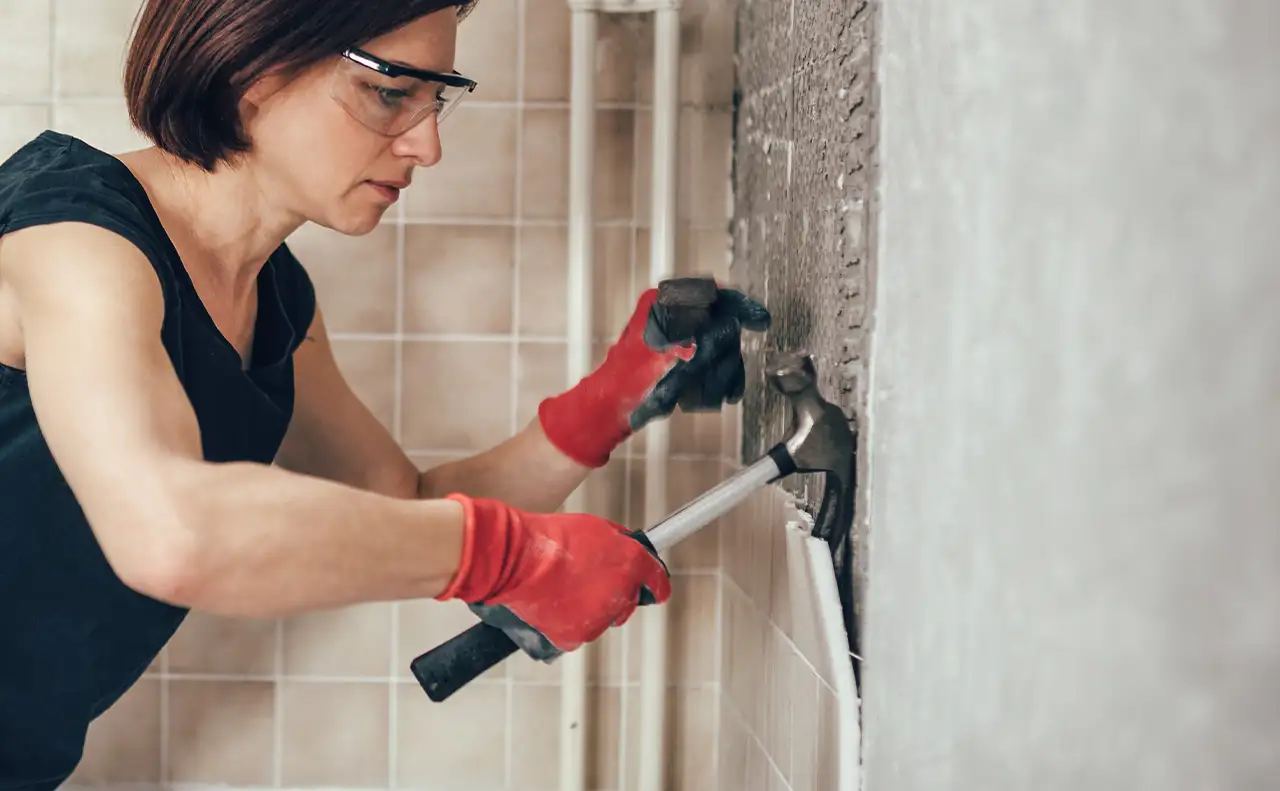
Home Equity Loans
6 ways to use a home equity loan or HELOC
Mar 19, 2023
Written by
Reviewed by
Key Takeaways:
Equity is the difference between what you owe on your home and what it's worth.
Home improvements and debt consolidation are two common reasons to borrow against your home.
There are very few restrictions on how you can use your home equity loan.
Want to paint a mural on your living room wall? You can do that. Feel like converting your garage into a hobby shop? Yep, that too.
Owning a home comes with perks, and freedom is at the top of the list.
Besides artistic freedom, you also get financial benefits. You’re building equity. Equity is finance-speak for the difference between what your home is worth and what you owe on the mortgage. Having equity is a good thing if you need cash for home improvements, debt consolidation, or another major financial goal.
You can borrow against your equity with a home equity loan or home equity line of credit (HELOC). Here are some of the best ways to put a home equity loan or line of credit to work for you.
Three top reasons to get a HELOC or home equity loan
Home equity loans and HELOCs are flexible. It’s not like getting a car loan, which is only for a car. Instead, you get to decide on the best way to use your loan to get ahead financially, based on your priorities.
Here are three of the most common uses for a HELOC or home equity loan.
Consolidate debt
A home equity loan or HELOC could help you pay off debt faster and potentially save money on interest in the bargain.
Say you've got $20,000 in credit card debt at 18.99%. You're diligently paying $500 to the debt each month but even so, it's going to take you 62 months (more than five years) to pay it off. Not to mention, you'll hand over nearly $11,000 in interest.
What if you got a $20,000 home equity loan at 10.5% instead?
If you still paid the same $500 a month, you could pay the loan off in 50 months, a full year earlier. But more importantly, you'd come out thousands of dollars ahead. Even with the home equity loan closing costs, you could save $5,000.
Less time. Less money. Let that sink in.
Think of what you could do with the extra cash. Plus, you can simplify your finances and reduce your stress by consolidating several debts, going from multiple monthly payments to just one.
Those are great reasons to consider using your home equity to consolidate debt.
Home improvements
Do you imagine yourself flipping pancakes in a shiny new kitchen? Has your family grown to the point where you’d love to add a room? Tackling renovation projects can make your home feel more "yours." And the right upgrades can help raise your home's value.
As a homeowner, you already know that you'll occasionally need to make repairs to keep your home in good working order. The water heater, the HVAC system, the roof…it all takes money. These big-ticket items can be a strain on anyone’s budget and often come up with little or no warning.
You can use your home equity to pay for them.
Major purchases
You've got a home, but you might need some things to go in it. Any of these on your wish list?
New appliances
New furniture
Upgrade to a smart home
Home security system
Electronics or a home theater
Those are all expenses you could pay for with a home equity loan or line of credit.
Why use a home equity loan for purchases like these? Borrowing against your home usually comes at a lower cost compared to what you might pay with a credit card or a store charge card. If you plan to borrow anyway to make a large purchase, it makes sense to choose the option that saves you the most money on interest.
Three more reasons to use a home equity loan or HELOC
Need a few more ideas for how to use a home equity loan or HELOC? Here are three other scenarios where using your equity could make sense.
Medical expenses
Health care can be expensive, even with insurance. Just one medical event can leave you with a pile of bills to pay.
There are several ways to strategize getting your medical debt reduced or forgiven. But even if your providers are willing to negotiate with you, you may still end up having to pay significant medical expenses. A home equity loan or HELOC is one way to pay them off.
Financial emergency
Life happens and when it does, you might need cash to cover a situation you weren't expecting.
Financial emergencies can be big (think a job loss you never saw coming) or small (like a car repair). Borrowing against your home equity can help you get through an emergency with less financial stress.
For example, you could use a HELOC to pay your day-to-day bills while you look for a new job. If your car needs a new transmission, you could get a home equity loan to pay the mechanic so you can get back on the road as soon as possible.
Plan a wedding
It's happened: One of your kids has come to you to tell you that they're getting married.
You're overjoyed, but there's a question at the back of your mind: How are we going to pay for it?
A wedding costs nearly $30,000 on average these days. Even if you're doing a lot of the work yourself and cutting corners, you still might need cash to cover the deposits, pay the caterers, or hire a band.
Yet again, your home equity can save the day.
If you need to plan a wedding, then a home equity loan or HELOC can be a helpful source of cash.
Your home equity is valuable—use it wisely
Home equity loans and HELOCs can pay for a lot of different expenses. But choose how you use your equity carefully since you'll have to pay back anything you borrow.
Some of the things you might want to think twice about using home equity for include:
Luxury vacations
High-risk investments
To cover cash flow problems
Borrowing against your home to pay for a luxury item like a vacation might be an indication that you’re spending beyond your means. Investing money that you can't afford to lose isn't a good idea. If you are struggling to make ends meet, a loan won’t solve your problem because it won’t reduce your debt.
Author Information
Written by
Rebecca is a senior contributing writer and debt expert. She's a Certified Educator in Personal Finance and a banking expert for Forbes Advisor. In addition to writing for online publications, Rebecca owns a personal finance website dedicated to teaching women how to take control of their money.
Reviewed by
Kimberly is Achieve’s senior editor. She is a financial counselor accredited by the Association for Financial Counseling & Planning Education®, and a mortgage expert for The Motley Fool. She owns and manages a 350-writer content agency.
Frequently asked questions
What is a home equity loan?
A home equity loan is a type of mortgage and depends on how much equity you have in your home. Equity is the difference between your home’s value and the amount you still owe on your mortgage. You’ll pledge your home as security (or “collateral”) for the loan. Because the loan is tied to a valuable asset, it may cost less and have a higher limit than similar loans that aren't tied to an asset, like personal loans. You’ll pay your home equity loan back with interest according to a payment schedule set by your lender.
How does a home equity loan work?
A home equity loan is similar to your first mortgage. The lender will verify your income and order a property appraisal. You’ll get a lump sum of money when you finalize your loan. A home equity line of credit (HELOC) works a little differently. Instead of getting a lump sum, you get a flexible credit line you can borrow against as needed.
How much can you borrow against your house?
The dollar amount you're able to get with a home equity loan or HELOC will depend on how much equity you have and the lender's requirements. You’ll get the lower of two amounts: one is the lender’s maximum loan amount; the other is the lender’s maximum loan-to-value ratio or LTV. LTV is just another way of saying how much you owe compared to how much your home is worth. If your house is worth $100,000 and you owe $50,000 on your mortgage, your LTV is 50%. Most lenders set the maximum LTV at 80% to 85% (this includes your first mortgage if you have one plus the home equity loan you want). Loan limits are similar for HELOCs.
Lenders also consider your credit scores and income when reviewing your application.
Related Articles
A home equity loan is a way to get cash from your home’s value without selling it. They can have much lower interest rates and affordable monthly payments. Learn more...
Gideon Sandford
Author
A home equity loan lets you borrow against the equity in your home with a fixed rate and fixed monthly payments. Learn how a home equity loan works.
Betsalel Cohen
Author
A fixed-rate HELOC combines the best traits of HELOCs and home equity loans, but most lenders don’t offer it. Learn how it works and how to get one.
Kimberly Rotter
Author
A home equity loan is a way to get cash from your home’s value without selling it. They can have much lower interest rates and affordable monthly payments. Learn more...
Gideon Sandford
Author
A home equity loan lets you borrow against the equity in your home with a fixed rate and fixed monthly payments. Learn how a home equity loan works.
Betsalel Cohen
Author
A fixed-rate HELOC combines the best traits of HELOCs and home equity loans, but most lenders don’t offer it. Learn how it works and how to get one.
Kimberly Rotter
Author


